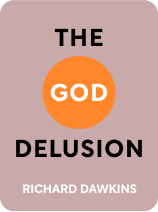

This article is an excerpt from the Shortform book guide to "The God Delusion" by Richard Dawkins. Shortform has the world's best summaries and analyses of books you should be reading.
Like this article? Sign up for a free trial here .
What is Pascal’s theory? Is it a convincing argument for a belief in God?
Pascal’s theory, or Pascal’s wager, says that not believing in God has high stakes. Therefore, the only logical thing to do is to believe in God.
Read more about Pascal’s theory below.
Pascal’s Theory
Lastly, Pascal’s wager, proposed by the French philosopher Blaise Pascal in the 17th century, isn’t an argument that seeks to prove God’s existence, but it does try to make the case that an individual ought to believe in God. The argument goes:
- If you believe in God and he does exist, you are rewarded with an eternity in heaven (according to Christianity at least).
- If you believe in God and he doesn’t exist, you gain nothing but also suffer no penalty.
- Likewise, if you don’t believe in God and he doesn’t exist, you gain nothing but suffer no penalty.
- However, if you don’t believe in God and he does exist, you will suffer eternal torment and damnation.
According to Pascal’s theory, there is no cosmic upside to being an atheist; but there is potentially an enormous downside. Therefore, the only logical thing to do is to believe in God.
However, this thought experiment fails to make an airtight case for belief in God. You can’t be forced to believe something; you either believe it or you don’t. The only thing Pascal’s wager could compel is false belief, pretending to accept the existence of an omnipotent, omniscient God. But wouldn’t this all-seeing, all-knowing deity see through your ruse? Might he then be inclined to punish you further for your attempts to deceive him?
What’s more, how do you know if the God you happen to believe in is the one that really exists? By picking the “wrong” God, you might have damned yourself just as much as by believing in no God at all.

———End of Preview———
Like what you just read? Read the rest of the world's best book summary and analysis of Richard Dawkins's "The God Delusion" at Shortform .
Here's what you'll find in our full The God Delusion summary :
- Why Dawkins thinks religion has exerted a harmful influence on human society
- How Dawkins concludes that the existence of God is unlikely
- The 3 arguments that challenge the existence of God






